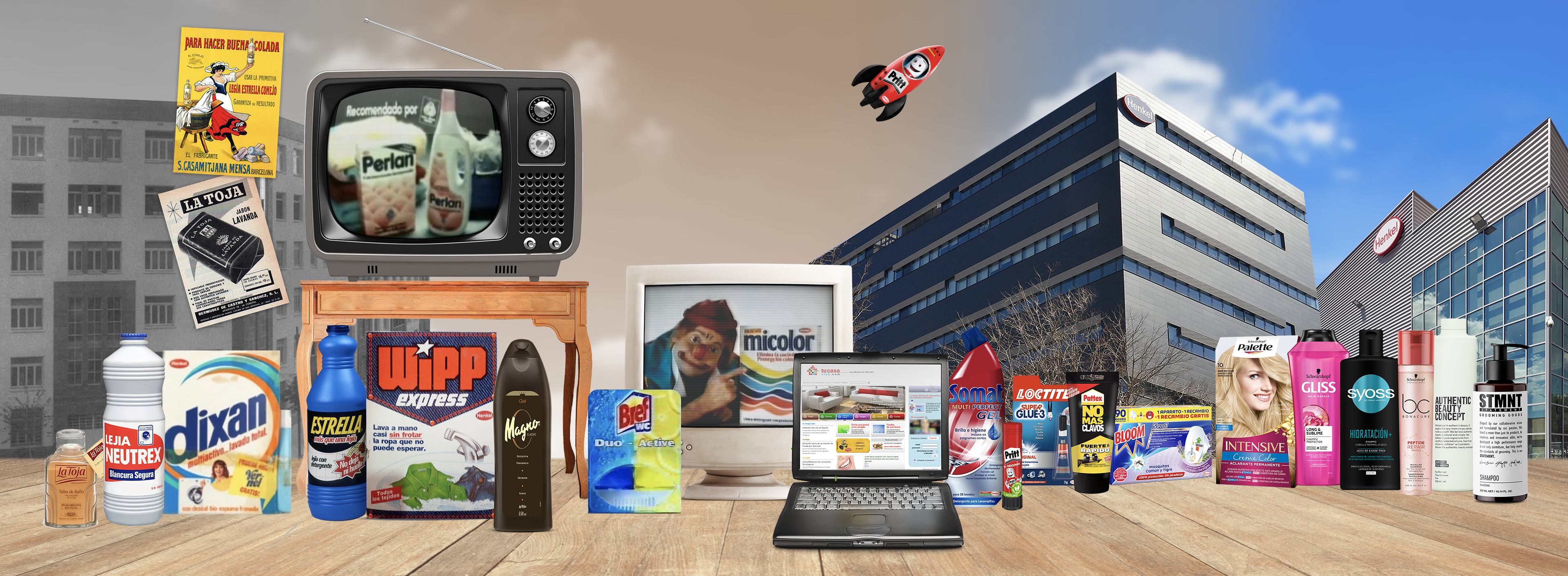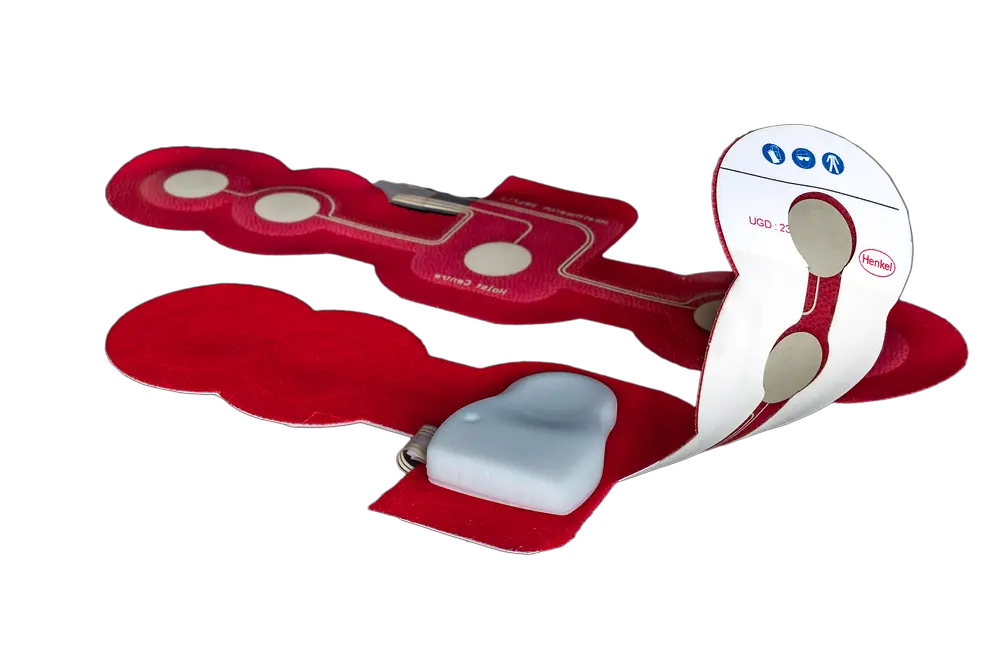Descubre las marcas de nuestras unidades de negocio: Adhesive Technologies y Consumer Brands.
26 feb. 2018 Düsseldorf / Germany
Henkel presents latest printed electronics materials for next-generation designs at LOPEC 2018
At next month’s LOPEC event in Munich, Germany, Henkel will display a range of new material innovations for medical and automotive printed electronics applications. Novel printed inks and coatings for health monitoring, in-cabin automotive design, self-regulating heating technology and ink-compatible solder materials will be the center of the Henkel exhibit in Hall B0, Booth 401.
Continuing its development of enabling materials for the medical sector, Henkel will debut a new water-based carbon ink that is designed to build printed moisture sensors. The highly durable and flexible Loctite ECI 7005 E&C ink is printed on a foil and embedded underneath a mattress’s top layer or in a disposable bed pad. Connectivity to the sensor allows for notification of moisture presence. Ideal for hospitals, adult nursing home facilities, daycare and in-home applications, the new Henkel ink helps medical professionals and caretakers optimize patient health and comfort. Additionally, monitoring of cardio performance is among Henkel’s medical innovations. The company’s materials for smart health patches, which measure, monitor and report heart rate and ECG to any wireless device, will again be on show at LOPEC. The material set, which includes conductive electrode inks, pressure-sensitive adhesives, conformal coatings for PCB protection, and Technomelt low pressure molding materials, offers a holistic solution for these innovative self-monitoring devices. Smart health patch samples will be available at the Henkel booth.
Emerging design and performance requirements for next-generation vehicles are also driving advances in printed electronic materials. Henkel, a leading supplier to automotive electronics firms, will leverage the LOPEC event to focus specifically on its Loctite thermoformable inks and self-regulating, positive temperature coefficient (PTC) inks for modern vehicle camera, mirror and battery applications. Enabling streamlined cabin design that integrates form and function, Henkel’s thermoformable conductive inks facilitate in-mold electronics, allowing electronic function to be embedded into molding materials and plastics to eliminate the need for knobs or switches. Furthermore, the company’s novel heating inks are lending improved performance to multiple automotive applications. Loctite PTC materials are thin, flexible inks that are ideal for tight dimensions and challenging designs, offering controlled, rapid, uniform heating that will not rise above the temperature set-point. The inks have been successfully integrated into in-cabin applications and exterior mirror defrosting, and are in qualification for vehicle camera lens defrosting and lithium-ion battery heating for cold-temperature performance. Henkel’s PTC inks are extremely versatile and adaptable for a variety of products not only in automotive, but in the consumer, construction and home appliance markets as well.
Finally, the Henkel team will debut at LOPEC 2018 a breakthrough low-temperature solder designed for use with several of the company’s conductive inks. Well-suited for LED applications, Loctite LM 100 allows soldering directly onto silver-filled conductive inks on PET or PI substrates. Until now, it has not been possible to form a robust solder joint with an ink, primarily due to its resin structure. Loctite LM 100’s formulation, however, addresses this issue, allowing ink – solder compatibility.
LOPEC show delegates are invited to visit the Henkel team in Hall B0, Booth 401 and learn more about these products and the company’s full line of printed electronic solutions. Additional information can be found by visiting www.henkel-adhesives.com/electronics.
Medical health patch with a skin compatible adhesive.




